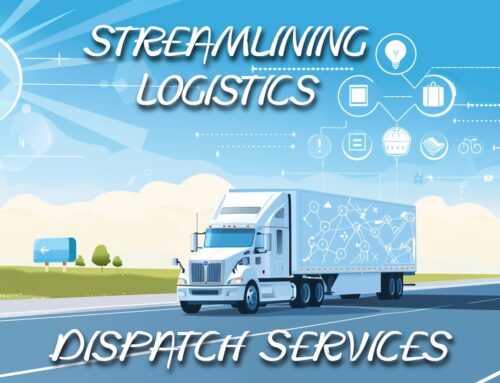Table of Contents
Embarking on the journey of starting a trucking company requires strategic planning, attention to detail, and one of the most crucial decisions you’ll make: selecting the appropriate business structure. Your choice will shape the legal, financial, and operational aspects of your enterprise, influencing everything from liability to taxation and management. Let’s look into the intricacies of the four main business structures and their respective advantages and drawbacks to help guide your decision-making process.
Sole Proprietorship: The Simplest Path
A sole proprietorship is perhaps the most straightforward form of business ownership, characterized by a single individual who owns and operates the business. As the sole owner, you have complete control over decision-making and operations, making it an attractive option for many trucking entrepreneurs, especially those starting small-scale operations.
Advantages of a sole proprietorship include:
- Easy Setup: Establishing a sole proprietorship involves minimal paperwork and legal formalities, making it a hassle-free option for new ventures.
- Direct Control: As the sole proprietor, you retain full control over business operations, allowing for quick decision-making and flexibility in adapting to market changes.
However, sole proprietorships also come with inherent disadvantages:
- Unlimited Liability: One of the most significant drawbacks is that the owner assumes unlimited personal liability for the business’s debts and obligations. In the event of legal action or financial distress, personal assets, including savings and property, are at risk.
- Limited Fundraising Potential: Compared to other business structures, sole proprietorships may face challenges in raising capital, as banks and investors may perceive them as higher-risk ventures due to the lack of formal structure and limited liability protection.
Partnership: Sharing Responsibilities and Rewards
Partnerships offer an avenue for two or more individuals to collaborate and share ownership of a business venture. While partnerships come in various forms, the two primary types are general partnerships and limited partnerships, each with distinct characteristics and implications for liability and management.
Advantages of partnerships include:
- Shared Responsibilities: Partnerships distribute management duties and decision-making among multiple individuals, leveraging the diverse skills and expertise of each partner.
- Increased Capital: With multiple partners contributing funds and resources, partnerships may have greater access to capital compared to sole proprietorships, facilitating business growth and expansion.
However, partnerships also pose certain challenges:
- Unlimited Liability for General Partners: In a general partnership, all partners assume unlimited personal liability for the business’s debts and obligations, placing their personal assets at risk.
- Potential for Disagreements: Partnerships require clear communication and mutual understanding among partners. Disagreements over business decisions, financial matters, or the division of profits can strain relationships and jeopardize the business’s stability.
Limited Liability Company (LLC): Balancing Protection and Flexibility
An LLC combines the benefits of a corporation with the operational flexibility of a partnership or sole proprietorship. LLCs offer limited liability protection, shielding owners from personal liability for business debts and legal actions while allowing for pass-through taxation, where profits and losses flow through to the owners’ personal tax returns.
Advantages of an LLC include:
- Limited Liability: LLC owners, known as members, enjoy limited personal liability, protecting their personal assets from business-related liabilities and lawsuits.
- Pass-Through Taxation: Unlike corporations, LLCs are not subject to double taxation. Profits and losses are reported on the owners’ individual tax returns, avoiding taxation at both the corporate and personal levels.
Despite its benefits, LLCs have certain drawbacks:
- Complexity in Setup: Establishing an LLC involves more paperwork and formalities compared to sole proprietorships or partnerships, requiring the filing of articles of organization and adherence to state-specific regulations.
Corporation: Formal Structure, Enhanced Protection
A corporation is a separate legal entity from its owners, offering the highest level of personal asset protection and formal structure among the business entities. Corporations issue shares of stock to shareholders, who elect a board of directors to oversee corporate affairs and major decisions.
Advantages of a corporation include:
- Limited Liability: Shareholders enjoy limited personal liability, protecting their personal assets from business debts, lawsuits, and legal claims against the corporation.
- Easier Access to Capital: Corporations have the ability to issue stock and attract investors, providing a stable source of capital for business expansion and investment.
However, corporations also face certain challenges:
- Double Taxation: Corporations are subject to double taxation, where corporate profits are taxed at the corporate level, and dividends distributed to shareholders are taxed again on their individual tax returns.
- Complexity and Expense: Establishing and maintaining a corporation requires compliance with extensive legal and regulatory requirements, including the filing of articles of incorporation, regular board meetings, and financial reporting.
S Corporation: Tax Advantages and Flexibility
An S corporation, also known as an S Corp, is a variation of a traditional corporation that offers specific tax benefits while retaining some of the advantages of a corporation. To qualify as an S Corp, the business must meet certain IRS requirements, including having a limited number of shareholders and only specific types of shareholders (e.g., individuals, certain trusts, and estates).
Advantages of an S Corporation:
- Pass-Through Taxation: Similar to LLCs, S corporations benefit from pass-through taxation. This means corporate profits and losses pass through directly to the shareholders’ personal tax returns, avoiding double taxation (unlike traditional corporations).
- Limited Liability: Like traditional corporations, S corporations offer limited liability protection to shareholders. This safeguards personal assets from business liabilities, such as debts or lawsuits.
- Potentially Lower Tax Rates: Depending on the individual shareholder’s tax situation, S corporations can offer lower overall tax rates compared to traditional corporations, especially for businesses with high profits and low employee salaries.
Disadvantages of an S Corporation:
- IRS Requirements: Qualifying for and maintaining S corporation status requires adherence to specific IRS regulations, including limitations on the number and types of shareholders. This can add complexity compared to other structures.
- Potential for Self-Employment Taxes: Unlike traditional corporations, S corporation shareholders who are also employees may be subject to self-employment taxes on their share of the company’s profits.
- Potentially Higher Costs: Establishing and maintaining an S corporation can involve higher filing fees and legal costs compared to simpler structures like sole proprietorships.
Choosing Between a Corporation and an S Corporation:
The decision between a traditional corporation and an S corporation depends on various factors, including your tax situation, growth goals, and risk tolerance. Consulting with a tax professional can help you determine the most suitable structure for your specific circumstances.
Making an Informed Decision
Choosing the right business structure for your trucking company is a pivotal decision that requires careful consideration of your business goals, risk tolerance, and long-term objectives. While each structure offers unique benefits and drawbacks, there is no one-size-fits-all solution.
Consulting with legal and financial professionals, such as lawyers and accountants, can provide invaluable guidance and insight into the implications of each business structure on your trucking business. Consider your company’s specific needs, growth plans, and risk profile before making a final decision.
Additional Considerations
Beyond the legal structure, several other factors merit consideration:
- Business Goals: Evaluate your short-term objectives and long-term vision for the trucking company.
- Growth Plans: Assess your growth potential and scalability within the chosen business structure.
- Personal Preferences: Consider your comfort level with risk, decision-making authority, and management style.
By thoroughly evaluating these factors and understanding the implications of each business structure, you can make an informed decision that sets your trucking company on the path to sustainable growth and success in the competitive transportation industry.
Maximizing Profits with AFT Dispatch
While navigating the legalities of establishing your trucking company, remember that AFT Dispatch is here to empower you on your entrepreneurial journey. Our established truck dispatch service can significantly enhance your profitability by connecting you with high-paying loads and streamlining your dispatching operations, freeing you up to focus on what matters most – driving and growing your business.
Benefits of AFT Dispatch’s Services:
- Increased Revenue: Our network of trusted carriers allows us to secure top-paying freight for our clients, maximizing their earning potential.
- Reduced Time Spent Finding Loads: Eliminate the time-consuming task of searching for loads and focus on driving by letting our experienced dispatchers handle the load board navigation for you.
- Improved Efficiency: Our streamlined dispatching process ensures clear communication, timely updates, and efficient route planning, optimizing your overall operations.
- Reduced Hassle: We handle the complexities of paperwork, negotiations, and communication with shippers, allowing you to concentrate on driving and delivering your loads.
Take Charge of Your Success
Ready to unlock the full potential of your trucking company? Let AFT Dispatch be your partner in achieving financial freedom and long-term success.
Fill out the short form below to learn more about our comprehensive dispatch services and how we can help you take your trucking business to the next level.
Still have questions? Our friendly and knowledgeable team is always happy to assist you. Feel free to call or text us at (801) 448-6363, or explore our vast library of free educational trucking videos to gain valuable insights and industry knowledge.
Legal Disclaimer
Important Notice: The information provided on this website is for informational purposes only and should not be construed as legal, financial, or professional advice. AFT Dispatch, its affiliates, and contributors are not engaged in rendering legal, financial, or professional services. Any reliance on the information presented herein is at your own risk.
Consultation Recommended: Readers are strongly advised to seek the advice of qualified legal, financial, or professional advisors regarding their specific circumstances and needs. Laws and regulations vary by jurisdiction, and the application of legal or financial principles may differ based on individual situations.
No Liability: AFT Dispatch shall not be held liable for any damages, losses, or liabilities arising from the use or reliance on the information provided on this website. By accessing and using this website, you agree to release AFT Dispatch from any and all claims, demands, and damages arising out of or in connection with the use of this website or the information contained herein.
Accuracy and Completeness: While we strive to provide accurate and up-to-date information, we make no representations or warranties of any kind, express or implied, about the completeness, accuracy, reliability, suitability, or availability of the information, products, services, or related graphics contained on this website.
Changes to Disclaimer: AFT Dispatch reserves the right to update, amend, or change the information presented on this website, including this disclaimer, at any time and without prior notice.
For specific legal, financial, or professional advice tailored to your individual circumstances, please consult with a qualified professional advisor.






Leave A Comment